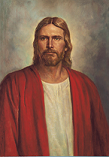
FAIR is a non-profit organization dedicated to providing well-documented answers to criticisms of the doctrine, practice, and history of The Church of Jesus Christ of Latter-day Saints.
mNo edit summary |
mNo edit summary |
||
| Line 97: | Line 97: | ||
{{FAQ | {{FAQ | ||
|q= | |q=What acts are not to be treated in a disciplinary council? | ||
|a= | |a=Leaders are instructed not to hold disciplinary councils for the following: | ||
* Civil disputes | |||
* Failure to live the Word of Wisdom | |||
* Masturbation | |||
* Pornography use | |||
* Failure to pay tithing | |||
* Failure to attend Church | |||
* Failure to fulfill Church callings. | |||
* Business failures or non-payment of debt (though felonious business practices might prompt a council as described above)<ref>''Handbook 1'', 6.7.1</ref> | |||
|quote= | |quote= | ||
|link= | |link= | ||
| Line 111: | Line 120: | ||
{{FAQ | {{FAQ | ||
|q= | |q=Who decides to convene a disciplinary council? | ||
|a= | |a=Only bishops and stake or mission presidents may convene a disciplinary council. Bishops must have clearance from the stake president before initiating any council. | ||
|quote= | |quote= | ||
|link= | |link= | ||
| Line 125: | Line 134: | ||
{{FAQ | {{FAQ | ||
|q= | |q=Where are disciplinary councils held? | ||
|a= | |a=Councils are usually held by the leaders of the geographic unit in which a member lives. If a member moves, a Church leader can place a “hold” on the transfer of records to another ecclesiastical unit. Leaders from the old and new unit then confer, and determine who is best suited to conduct the disciplinary council. | ||
|quote= | |quote= | ||
|link= | |link= | ||
| Line 139: | Line 148: | ||
{{FAQ | {{FAQ | ||
|q= | |q=What determines if a council is handled by the bishop? When is the stake president involved? | ||
|a= | |a=The stake president is the president of the Church’s higher, or Melchizedek priesthood. Thus, any accusation against a priesthood holder must be resolved by the stake president. In practice, this means that experienced adult males tend to require stake disciplinary councils. Younger men who do not , teens, and women are typically managed by a bishop’s disciplinary council. | ||
|quote= | |quote= | ||
|link= | |link= | ||
| Line 153: | Line 162: | ||
{{FAQ | {{FAQ | ||
|q= | |q=Who participates in a bishop’s disciplinary council? | ||
|a= | |a=The bishop’s disciplinary council consists of: | ||
* The member accused of transgression | |||
* The bishop | |||
* The bishop’s two counselors | |||
* A clerk or secretary to take minutes | |||
Witnesses requested by either the bishop or the member for whom the council is convened may also attend. They will be present only to give evidence, and then will be excused. They do not participate in the rest of the council, and are not made aware of the decision reached. | |||
|quote= | |quote= | ||
|link= | |link= | ||
| Line 165: | Line 180: | ||
|tag2= | |tag2= | ||
}} | }} | ||
{{FAQ | {{FAQ | ||
|q= | |q=Who participates in a stake disciplinary council? | ||
|a= | |a=The stake disciplinary council consists of: | ||
*The member accused of transgression | |||
*The stake president | |||
*The stake president’s two counselors | |||
*A clerk or secretary to take minutes | |||
*Twelve members of the stake high council | |||
Witnesses requested by either the bishop or the member for whom the council is convened may also attend. They will be present only to give evidence, and then will be excused. They do not participate in the rest of the council, and are not made aware of the decision reached. | |||
|quote= | |quote= | ||
|link= | |link= | ||
| Answers portal |
| Mormon FAQ |

|
 Frequently Asked Questions about Church Disciplinary Councils
Frequently Asked Questions about Church Disciplinary CouncilsIf you have a question about the whys, hows, or wherefores of Church Discipline in the Church of Jesus Christ of Latter-day Saints, our FAQ has the answer.
|

FAIR is a non-profit organization dedicated to providing well-documented answers to criticisms of the doctrine, practice, and history of The Church of Jesus Christ of Latter-day Saints.
We are a volunteer organization. We invite you to give back.
Donate Now